The Rise of Organic Tomato Sauce in Jar Cans Introduction: The demand for organic food has been steadily increasing in recent years, prompting an expansion of organic food products in the market. A popular organic product that has gained significant attention is organic tomato sauce. This article will explore the growing popularity of organic tomato sauce, particularly in jar cans, highlighting the benefits of organic farming, consumer preferences, and the environmentally friendly packaging choices of jar cans. 1. The Benefits of Organic Farming: Organic farming practices involve the use of natural fertilizers and refraining from the use of synthetic pesticides or genetically modified organisms (GMOs). These practices promote healthier soil, reduce chemical runoff, and enhance biodiversity, making organic tomato sauce a preferred choice for health-conscious consumers. Organic farming also promotes sustainable agriculture by preserving water quality and conserving resources for future generations. 2. Rising Consumer Preferences for Organic Products: The organic food market has witnessed significant growth over the years, largely driven by increased consumer awareness of the potential health benefits associated with organic produce. Organic tomato sauce in jar cans caters to the preferences of health-conscious individuals, who seek to minimize exposure to chemicals and additives commonly used in conventional food processing. Furthermore, organic tomato sauce is often viewed as having a superior taste and quality compared to its conventional counterparts. 3. The Growing Demand for Organic Tomato Sauce: As people become more conscious of what they consume, the demand for organic tomato sauce has skyrocketed. Consumers appreciate the assurance that the tomatoes used in organic sauce are free from synthetic pesticides, genetically modified organisms (GMOs), and potentially harmful additives. The organic certification ensures that the product is grown and processed according to strict quality standards, giving consumers a sense of trust and confidence in their purchasing decisions. 4. The Benefits of Jar Can Packaging: Jar cans have emerged as an increasingly popular choice for packaging organic tomato sauce. Here are a few reasons why: a) Longer Shelf Life: Jar cans help extend the shelf life of organic tomato sauce due to their airtight sealing capabilities. This preservation allows consumers to store the sauce for longer periods without compromising its flavor or nutritional content. b) Protection against Light and Air: Organic tomato sauce is susceptible to degradation caused by exposure to light and air. The opaque nature of jar cans prevents light from penetrating the container, preserving the sauce’s color, taste, and nutritional value. c) Sustainability: Jar cans are often made from recyclable materials, reducing the environmental impact associated with packaging waste. The recycling process for jar cans consumes less energy compared to other packaging materials such as plastic or glass, helping to minimize the carbon footprint. d) Convenience: Jar cans offer a convenient and mess-free experience for consumers. The wide-mouth design of the jar allows for easy scooping or pouring, while the screw-on lid ensures a tight closure, preventing spillage and leakage. 5. Innovative Packaging Solutions: Companies in the organic tomato sauce industry are continually exploring innovative packaging solutions to meet consumer demands. Some companies are opting for BPA-free jar cans, addressing concerns about potential chemical leaching. Additionally, certain brands offer reusable jar cans, encouraging customers to repurpose the containers and minimize waste, further solidifying their commitment to sustainability. Conclusion: The rise of organic tomato sauce in jar cans reflects a shift in consumer preferences towards healthier, ethically sourced products. Organic farming practices contribute to a more sustainable food system, and the selection of jar cans as a preferred packaging option aligns with the growing emphasis on environmentally friendly choices. As consumers become more discerning in their food choices, the popularity of organic tomato sauce in jar cans is expected to continue to rise, driving the expansion of the organic food market and promoting a more sustainable food culture.1. Organic Tomato Sauce in Jar Cans: A Market Overview
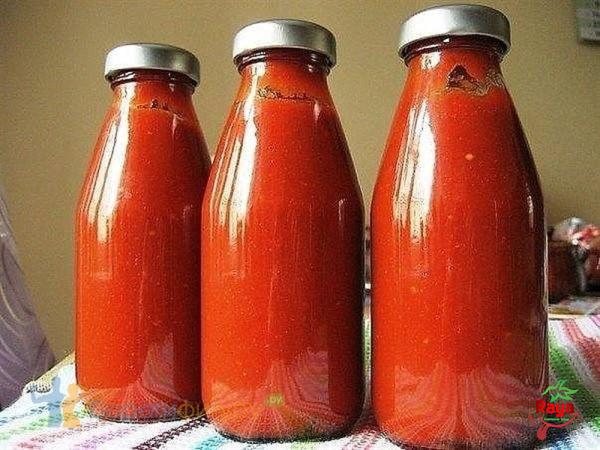
tomato paste
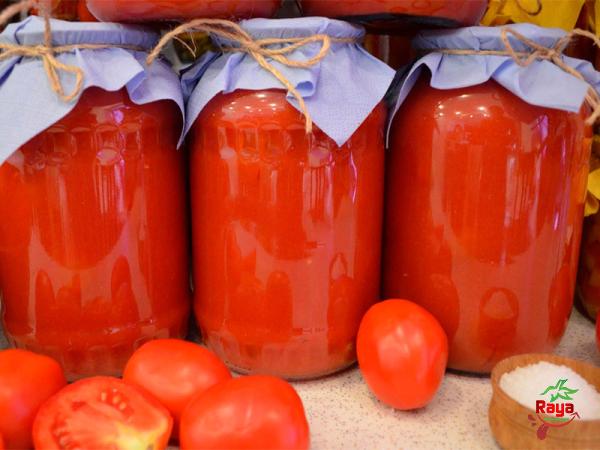 Organic tomato sauce in jar cans has gained significant traction in the market, catering to the increasing demand for healthy and sustainably sourced food products. This section will provide an overview of the market landscape, highlighting key players, consumer trends, and market dynamics. The market for organic tomato sauce in jar cans is primarily driven by consumers’ growing preference for organic and natural food options. With the rise in health-consciousness and concerns about the environmental impact of conventional farming practices, organic tomato sauce has emerged as a preferred choice for discerning consumers. Major players in the organic tomato sauce market have been quick to capitalize on this trend. Leading brands have introduced organic variants of their tomato sauce products, leveraging their brand reputation and consumer trust. These companies have also invested in innovative packaging solutions, such as jar cans, to enhance their product offerings and appeal to environmentally conscious consumers. 2. Consumer Demand for Organic Tomato Sauce in Jar Cans: Key Factors There are several key factors driving consumer demand for organic tomato sauce in jar cans. Understanding these factors can help businesses cater to consumer preferences and better position their products in the market. a) Health and Wellness Concerns: Consumers increasingly prioritize their health and seek out natural and organic food options. Organic tomato sauce in jar cans is considered a healthier alternative to conventional tomato sauce, as it is free from synthetic pesticides, GMOs, and potentially harmful additives commonly found in non-organic options. b) Environmental Sustainability: As consumers become more environmentally aware, they are drawn to packaging choices that are both eco-friendly and recyclable. Jar cans, with their recyclable materials and lower carbon footprint, align with sustainable practices, appealing to consumers’ eco-consciousness when purchasing organic tomato sauce. c) Superior Taste and Quality: Many consumers perceive organic tomato sauce to have a superior flavor and quality compared to conventional options. The use of organic tomatoes and the absence of chemical additives or preservatives contribute to a more authentic and flavorful product. d) Trust and Transparency: Organic tomato sauce, certified by accredited organizations, assures consumers that the product has been grown and processed in accordance with strict quality standards. The transparent labeling and use of natural ingredients further instill trust and confidence in consumers.
Organic tomato sauce in jar cans has gained significant traction in the market, catering to the increasing demand for healthy and sustainably sourced food products. This section will provide an overview of the market landscape, highlighting key players, consumer trends, and market dynamics. The market for organic tomato sauce in jar cans is primarily driven by consumers’ growing preference for organic and natural food options. With the rise in health-consciousness and concerns about the environmental impact of conventional farming practices, organic tomato sauce has emerged as a preferred choice for discerning consumers. Major players in the organic tomato sauce market have been quick to capitalize on this trend. Leading brands have introduced organic variants of their tomato sauce products, leveraging their brand reputation and consumer trust. These companies have also invested in innovative packaging solutions, such as jar cans, to enhance their product offerings and appeal to environmentally conscious consumers. 2. Consumer Demand for Organic Tomato Sauce in Jar Cans: Key Factors There are several key factors driving consumer demand for organic tomato sauce in jar cans. Understanding these factors can help businesses cater to consumer preferences and better position their products in the market. a) Health and Wellness Concerns: Consumers increasingly prioritize their health and seek out natural and organic food options. Organic tomato sauce in jar cans is considered a healthier alternative to conventional tomato sauce, as it is free from synthetic pesticides, GMOs, and potentially harmful additives commonly found in non-organic options. b) Environmental Sustainability: As consumers become more environmentally aware, they are drawn to packaging choices that are both eco-friendly and recyclable. Jar cans, with their recyclable materials and lower carbon footprint, align with sustainable practices, appealing to consumers’ eco-consciousness when purchasing organic tomato sauce. c) Superior Taste and Quality: Many consumers perceive organic tomato sauce to have a superior flavor and quality compared to conventional options. The use of organic tomatoes and the absence of chemical additives or preservatives contribute to a more authentic and flavorful product. d) Trust and Transparency: Organic tomato sauce, certified by accredited organizations, assures consumers that the product has been grown and processed in accordance with strict quality standards. The transparent labeling and use of natural ingredients further instill trust and confidence in consumers.
Specifications of tomato paste
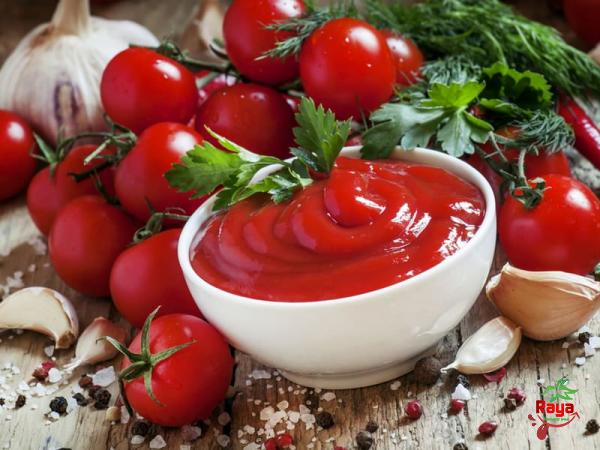 3. Competitive Landscape: Key Players in the Organic Tomato Sauce Market The organic tomato sauce market is highly competitive, with several key players vying for market share. Let’s explore some of the prominent brands in this space: a) Muir Glen: Known for its organic tomato products, Muir Glen offers a range of organic tomato sauces in jar cans. The brand’s commitment to sustainable farming practices and use of organic ingredients have helped establish Muir Glen as a trusted player in the market. b) Newman’s Own: Newman’s Own offers a variety of organic tomato sauces, including marinara and pasta sauces, in jar cans. The brand’s focus on high-quality ingredients and philanthropic activities has resonated with consumers seeking socially responsible options. c) Rao’s Homemade: Founded in 1896, Rao’s Homemade is renowned for its traditional Italian-style tomato sauces. The brand expanded its range to include organic options, packaged in jar cans, to cater to health-conscious consumers. d) San Marzano: Known for its San Marzano tomatoes, the company offers a selection of organic tomato sauces in jar cans. San Marzano’s commitment to using only the finest organic tomatoes has contributed to its reputation as a premium organic tomato sauce brand. 4. Marketing Strategies to Promote Organic Tomato Sauce in Jar Cans To effectively market organic tomato sauce in jar cans, businesses must employ strategic marketing techniques to target their desired consumer base. Here are some key strategies for promoting organic tomato sauce in jar cans: a) Digital Marketing: Utilize social media platforms, websites, and e-commerce platforms to create brand awareness and engage with consumers. Share educational content on the benefits of organic tomato sauce and highlight the convenience and sustainability aspects of jar can packaging. b) Influencer Partnerships: Collaborate with health and wellness influencers who align with organic and sustainable food values. Foster relationships with influencers who can authentically promote organic tomato sauce in jar cans, amplifying brand messaging to their followers. c) In-store Promotions: Partner with retailers to organize in-store promotions, tastings, and cooking demonstrations to showcase the flavor and versatility of organic tomato sauce in jar cans. Offer special discounts or bundles to entice shoppers to try the product. d) Packaging Design and Branding: The packaging design should reflect the premium and organic nature of the product. Use clean and simple designs, along with certifications and labeling, to communicate the organic credentials and attract consumers seeking organic options. 5. Addressing Consumer Concerns: BPA-Free Jar Cans One concern that some consumers may have about jar cans is the potential presence of BPA (Bisphenol A), a chemical often used in certain types of plastics and coatings. To address this concern, companies have started offering BPA-free jar cans, providing consumers with a safer packaging option. BPA-free jar cans are manufactured without the use of BPA, reducing the risk of chemical leaching. By offering BPA-free packaging, brands can alleviate consumer concerns and differentiate themselves as leaders in providing safe and sustainable packaging solutions.
3. Competitive Landscape: Key Players in the Organic Tomato Sauce Market The organic tomato sauce market is highly competitive, with several key players vying for market share. Let’s explore some of the prominent brands in this space: a) Muir Glen: Known for its organic tomato products, Muir Glen offers a range of organic tomato sauces in jar cans. The brand’s commitment to sustainable farming practices and use of organic ingredients have helped establish Muir Glen as a trusted player in the market. b) Newman’s Own: Newman’s Own offers a variety of organic tomato sauces, including marinara and pasta sauces, in jar cans. The brand’s focus on high-quality ingredients and philanthropic activities has resonated with consumers seeking socially responsible options. c) Rao’s Homemade: Founded in 1896, Rao’s Homemade is renowned for its traditional Italian-style tomato sauces. The brand expanded its range to include organic options, packaged in jar cans, to cater to health-conscious consumers. d) San Marzano: Known for its San Marzano tomatoes, the company offers a selection of organic tomato sauces in jar cans. San Marzano’s commitment to using only the finest organic tomatoes has contributed to its reputation as a premium organic tomato sauce brand. 4. Marketing Strategies to Promote Organic Tomato Sauce in Jar Cans To effectively market organic tomato sauce in jar cans, businesses must employ strategic marketing techniques to target their desired consumer base. Here are some key strategies for promoting organic tomato sauce in jar cans: a) Digital Marketing: Utilize social media platforms, websites, and e-commerce platforms to create brand awareness and engage with consumers. Share educational content on the benefits of organic tomato sauce and highlight the convenience and sustainability aspects of jar can packaging. b) Influencer Partnerships: Collaborate with health and wellness influencers who align with organic and sustainable food values. Foster relationships with influencers who can authentically promote organic tomato sauce in jar cans, amplifying brand messaging to their followers. c) In-store Promotions: Partner with retailers to organize in-store promotions, tastings, and cooking demonstrations to showcase the flavor and versatility of organic tomato sauce in jar cans. Offer special discounts or bundles to entice shoppers to try the product. d) Packaging Design and Branding: The packaging design should reflect the premium and organic nature of the product. Use clean and simple designs, along with certifications and labeling, to communicate the organic credentials and attract consumers seeking organic options. 5. Addressing Consumer Concerns: BPA-Free Jar Cans One concern that some consumers may have about jar cans is the potential presence of BPA (Bisphenol A), a chemical often used in certain types of plastics and coatings. To address this concern, companies have started offering BPA-free jar cans, providing consumers with a safer packaging option. BPA-free jar cans are manufactured without the use of BPA, reducing the risk of chemical leaching. By offering BPA-free packaging, brands can alleviate consumer concerns and differentiate themselves as leaders in providing safe and sustainable packaging solutions.
buy tomato paste
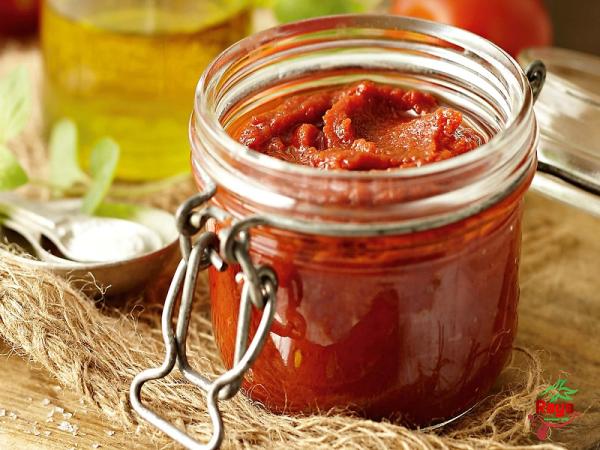 6. Sustainable Packaging Practices: Reusable Jar Cans In line with the growing emphasis on sustainability and waste reduction, some companies have introduced reusable jar cans for their organic tomato sauce products. These reusable containers are designed to encourage consumers to repurpose the jars rather than disposing of them after use. By promoting reusable jar cans, brands support the shift towards a circular economy and contribute to waste reduction efforts. This sustainable packaging practice resonates with environmentally conscious consumers who prioritize zero-waste initiatives and strive to minimize their environmental footprint. 7. Emerging Trends in Organic Tomato Sauce: Flavor Innovations To stay competitive in the organic tomato sauce market, businesses must continually innovate and offer new and exciting flavors to attract consumers. Some emerging flavor trends include: a) Spicy Variants: Spicy tomato sauces, infused with ingredients like chili peppers or jalapenos, cater to the growing demand for bold and intense flavors. b) Herb-Infused Sauces: Tangy and refreshing flavors like basil, oregano, or garlic-infused tomato sauces appeal to consumers looking for added depth and complexity in their dishes. c) Ethnic Flavors: Offering ethnic-inspired flavors such as curry, chipotle, or Mediterranean-inspired tomato sauces cater to consumers seeking unique culinary experiences. d) Seasonal Varieties: Introducing limited-edition seasonal flavors, like pumpkin or roasted pepper, enables companies to capitalize on seasonal trends and create excitement among consumers. 8. Opportunities and Challenges in the Organic Tomato Sauce Market While there are significant opportunities in the organic tomato sauce market, companies face certain challenges that need to be addressed. Some of these include: a) Price Sensitivity: Organic products are often perceived as more expensive compared to conventional options. Companies need to emphasize the value proposition of organic tomato sauce, highlighting the superior quality, health benefits, and sustainable farming practices associated with these products. b) Distribution Channels: Ensuring widespread distribution of organic tomato sauce in jar cans can be challenging, especially for smaller brands. Building relationships with retailers, exploring online distribution channels, and participating in local farmers’ markets can help expand market reach. c) Brand Differentiation: With the increasing number of competitors in the space, it becomes essential to differentiate the brand and create a unique selling proposition. Brands can achieve this through distinctive flavor profiles, eco-friendly packaging, or strong brand narratives that resonate with consumers. d) Consumer Education: Educating consumers about the benefits of organic farming and the value of choosing organic tomato sauce in jar cans is crucial. Brands should invest in consumer education initiatives, highlighting the superior taste, environmental benefits, and health advantages associated with organic tomato sauce. 9. The Outlook for Organic Tomato Sauce in Jar Cans The future looks promising for organic tomato sauce in jar cans. As the demand for organic food products continues to grow, companies that offer organic tomato sauce in sustainable packaging options like jar cans are well-positioned to capitalize on this trend. The increasing consumer preference for health-conscious and sustainably sourced products provides a solid foundation for the growth of organic tomato sauce in jar cans. By addressing consumer concerns, staying innovative with flavors, and leveraging strategic marketing techniques, brands can establish a significant foothold in the market and contribute to the overall growth of the organic food industry. 10. Conclusion The rise of organic tomato sauce in jar cans is a testament to the expanding market for organic and sustainably sourced food products. Consumers’ increasing demand for healthier options, coupled with their growing emphasis on environmentally friendly packaging, has paved the way for the popularity of organic tomato sauce in jar cans. By understanding consumer preferences, addressing concerns, and capitalizing on emerging trends in flavors and sustainability, businesses can effectively market their organic tomato sauce products in jar cans. With a focus on quality, transparency, and sustainable practices, brands can build strong connections with health-conscious consumers and drive the growth of the organic food market.
6. Sustainable Packaging Practices: Reusable Jar Cans In line with the growing emphasis on sustainability and waste reduction, some companies have introduced reusable jar cans for their organic tomato sauce products. These reusable containers are designed to encourage consumers to repurpose the jars rather than disposing of them after use. By promoting reusable jar cans, brands support the shift towards a circular economy and contribute to waste reduction efforts. This sustainable packaging practice resonates with environmentally conscious consumers who prioritize zero-waste initiatives and strive to minimize their environmental footprint. 7. Emerging Trends in Organic Tomato Sauce: Flavor Innovations To stay competitive in the organic tomato sauce market, businesses must continually innovate and offer new and exciting flavors to attract consumers. Some emerging flavor trends include: a) Spicy Variants: Spicy tomato sauces, infused with ingredients like chili peppers or jalapenos, cater to the growing demand for bold and intense flavors. b) Herb-Infused Sauces: Tangy and refreshing flavors like basil, oregano, or garlic-infused tomato sauces appeal to consumers looking for added depth and complexity in their dishes. c) Ethnic Flavors: Offering ethnic-inspired flavors such as curry, chipotle, or Mediterranean-inspired tomato sauces cater to consumers seeking unique culinary experiences. d) Seasonal Varieties: Introducing limited-edition seasonal flavors, like pumpkin or roasted pepper, enables companies to capitalize on seasonal trends and create excitement among consumers. 8. Opportunities and Challenges in the Organic Tomato Sauce Market While there are significant opportunities in the organic tomato sauce market, companies face certain challenges that need to be addressed. Some of these include: a) Price Sensitivity: Organic products are often perceived as more expensive compared to conventional options. Companies need to emphasize the value proposition of organic tomato sauce, highlighting the superior quality, health benefits, and sustainable farming practices associated with these products. b) Distribution Channels: Ensuring widespread distribution of organic tomato sauce in jar cans can be challenging, especially for smaller brands. Building relationships with retailers, exploring online distribution channels, and participating in local farmers’ markets can help expand market reach. c) Brand Differentiation: With the increasing number of competitors in the space, it becomes essential to differentiate the brand and create a unique selling proposition. Brands can achieve this through distinctive flavor profiles, eco-friendly packaging, or strong brand narratives that resonate with consumers. d) Consumer Education: Educating consumers about the benefits of organic farming and the value of choosing organic tomato sauce in jar cans is crucial. Brands should invest in consumer education initiatives, highlighting the superior taste, environmental benefits, and health advantages associated with organic tomato sauce. 9. The Outlook for Organic Tomato Sauce in Jar Cans The future looks promising for organic tomato sauce in jar cans. As the demand for organic food products continues to grow, companies that offer organic tomato sauce in sustainable packaging options like jar cans are well-positioned to capitalize on this trend. The increasing consumer preference for health-conscious and sustainably sourced products provides a solid foundation for the growth of organic tomato sauce in jar cans. By addressing consumer concerns, staying innovative with flavors, and leveraging strategic marketing techniques, brands can establish a significant foothold in the market and contribute to the overall growth of the organic food industry. 10. Conclusion The rise of organic tomato sauce in jar cans is a testament to the expanding market for organic and sustainably sourced food products. Consumers’ increasing demand for healthier options, coupled with their growing emphasis on environmentally friendly packaging, has paved the way for the popularity of organic tomato sauce in jar cans. By understanding consumer preferences, addressing concerns, and capitalizing on emerging trends in flavors and sustainability, businesses can effectively market their organic tomato sauce products in jar cans. With a focus on quality, transparency, and sustainable practices, brands can build strong connections with health-conscious consumers and drive the growth of the organic food market.

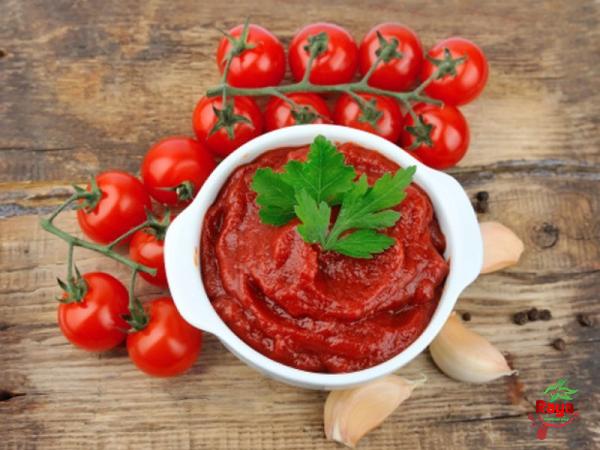
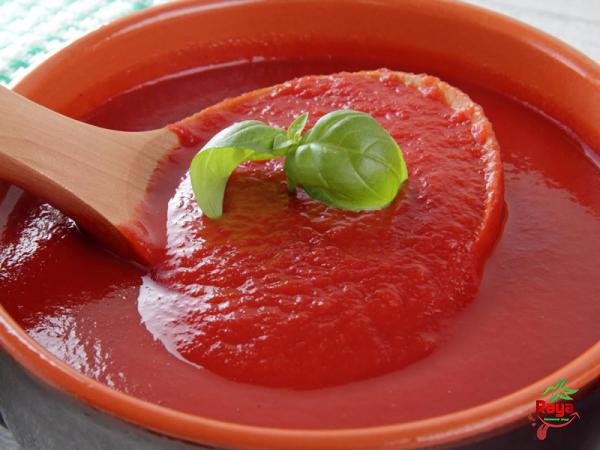


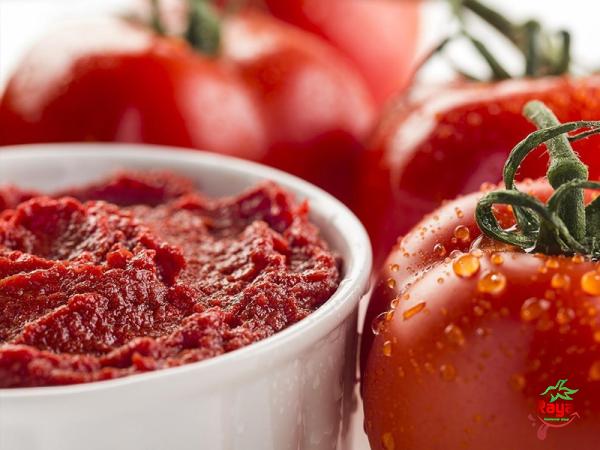



Your comment submitted.